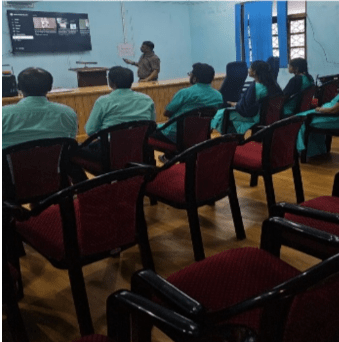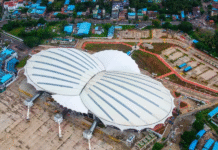To enhance the quality of livestock breeding in the Andaman and Nicobar Islands, a one-day training programme on artificial insemination (AI) in cattle was conducted at the Veterinary Hospital in Junglighat. Organized by the Department of Animal Husbandry, the initiative aimed at upskilling para-veterinary staff with advanced AI techniques and practical knowledge to improve service delivery across the islands.
Ten para-vets from Junglighat and the Rinderpest Unit took part in the training. The session was led by Dawande Kuldip N, Senior Veterinary Officer, who demonstrated AI procedures, elaborated on semen handling and storage, and offered guidance on managing reproductive health in bovines under field conditions. A major emphasis was placed on hygiene, precision timing, and accurate record maintenance to ensure higher conception rates.
The training forms part of a broader strategy by the Department to strengthen veterinary services and improve the genetic potential of the island’s cattle population. With many livestock-rearing families depending on cattle for livelihood and sustenance, improved breeding outcomes can significantly impact rural incomes and milk production.
The technical session also covered troubleshooting common reproductive disorders, allowing participants to share field challenges and receive practical guidance. The hands-on format allowed for real-time learning, which participants acknowledged as both enriching and immediately applicable.
In remote island settings where access to veterinary support can be limited, such training initiatives help bridge service gaps. By enabling para-vets to deliver high-quality AI services closer to rural households, the Department aims to reduce dependence on external breeding support and ensure timely interventions.
Artificial insemination is considered one of the most effective methods to improve livestock productivity. By enabling targeted breeding with genetically superior bulls, AI helps accelerate the development of high-yielding dairy and draught cattle. However, the success of such programmes depends on the competence of the field staff, which makes periodic refresher training essential.
The Department has indicated plans to replicate similar training sessions across various zones in the islands. This approach will ensure uniformity in AI techniques and boost success rates across regions. Future sessions are likely to focus not only on technical skill enhancement but also on introducing digital record-keeping and reproductive health tracking systems.
In the absence of large-scale commercial breeding farms in the islands, field-level AI remains a cornerstone of the livestock development strategy. The training held in Junglighat is seen as a vital step toward building a technically sound, community-embedded veterinary workforce.
The event also underscores the administration’s commitment to modernizing rural veterinary services in line with national livestock development goals. By aligning training with practical field needs, the Department hopes to ensure that the benefits of technology reach even the most remote farming households in the islands.





